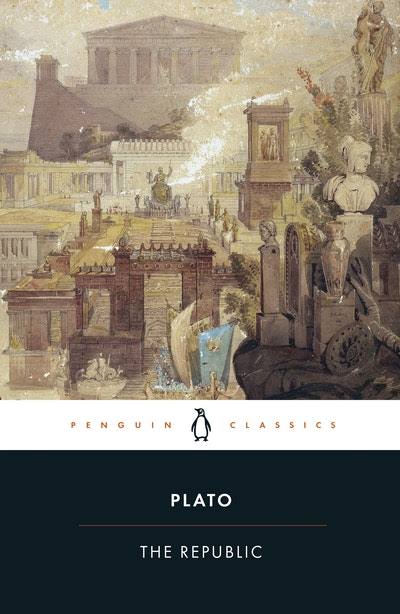Got a Minute extra for God?
Has anyone ever told you: יהוה (Yahweh) God loves you and has a great plan for your life?
Has anyone ever told you: יהוה (Yahweh) God loves you and has a great plan for your life?

The question, “What can we learn about the Kingdom of God from Plato’s Republic?” invites an exploration of how the philosophical ideas presented in Plato’s Republic can offer insights or contrasts to the biblical concept of the Kingdom of God. While Plato’s Republic is a secular work focused on the idea of a just society ruled by philosopher-kings, it presents ideals about justice, governance, and morality that can be examined alongside biblical teachings on God’s Kingdom. By comparing and contrasting these perspectives, we can deepen our understanding of the Kingdom of God as presented in Scripture.
Plato’s Republic is a philosophical dialogue written around 380 BC that centers on the nature of justice, the characteristics of a just city-state, and the just individual. Plato, through the character of Socrates, describes an ideal society governed by philosopher-kings who rule based on wisdom, rationality, and justice. This society is characterized by a class structure where rulers, soldiers, and producers each play their role in maintaining harmony and order. The Republic emphasizes the need for a society where justice prevails, and each person fulfills their designated role.
In contrast, the Kingdom of God in Christian theology is the reign and rule of God over all creation, particularly in the hearts and lives of believers who submit to His authority. The Kingdom of God is not a physical realm but rather the manifestation of God’s will on earth as it is in heaven (Matthew 6:10). It embodies righteousness, peace, and joy in the Holy Spirit (Romans 14:17). Unlike Plato’s ideal society, the Kingdom of God is not built on human wisdom or societal structures but on divine principles of love, grace, and justice as revealed through Jesus Christ.
Several key scriptures in the NASB 2020 translation provide a biblical foundation for understanding the Kingdom of God:
While Plato’s Republic and the biblical concept of the Kingdom of God both discuss ideals of justice and governance, they do so from different foundations and perspectives:
One common misconception is that Plato’s Republic and the biblical Kingdom of God share the same vision for an ideal society. However, while there are some overlapping themes, such as justice and morality, the foundations are different. The Republic is built on human reason and philosophy, whereas the Kingdom of God is built on divine authority, love, and grace.
Another misunderstanding could be that the Kingdom of God requires a similar hierarchical structure to Plato’s ideal society. In reality, the Kingdom of God is not about social hierarchy but about spiritual equality and servanthood (Mark 10:42-45). Jesus teaches that greatness in His Kingdom is found in serving others, not in wielding power over them.
Understanding the distinctions and comparisons between Plato’s Republic and the Kingdom of God provides practical insights for modern Christian living:
Practical reflections for Christians include:
While Plato’s Republic presents a vision of a just society based on human wisdom, the Kingdom of God offers a divine vision rooted in God’s righteousness, love, and authority. By understanding both perspectives, believers can better appreciate the unique nature of God’s Kingdom and live out its principles in their daily lives. The Kingdom of God is not about building a perfect society through human effort but about transforming hearts and communities through the power of the Gospel. Believers are encouraged to love what God loves, hate what He hates, and seek first His Kingdom, trusting that God will provide and guide in every aspect of life.
Add your first comment to this post